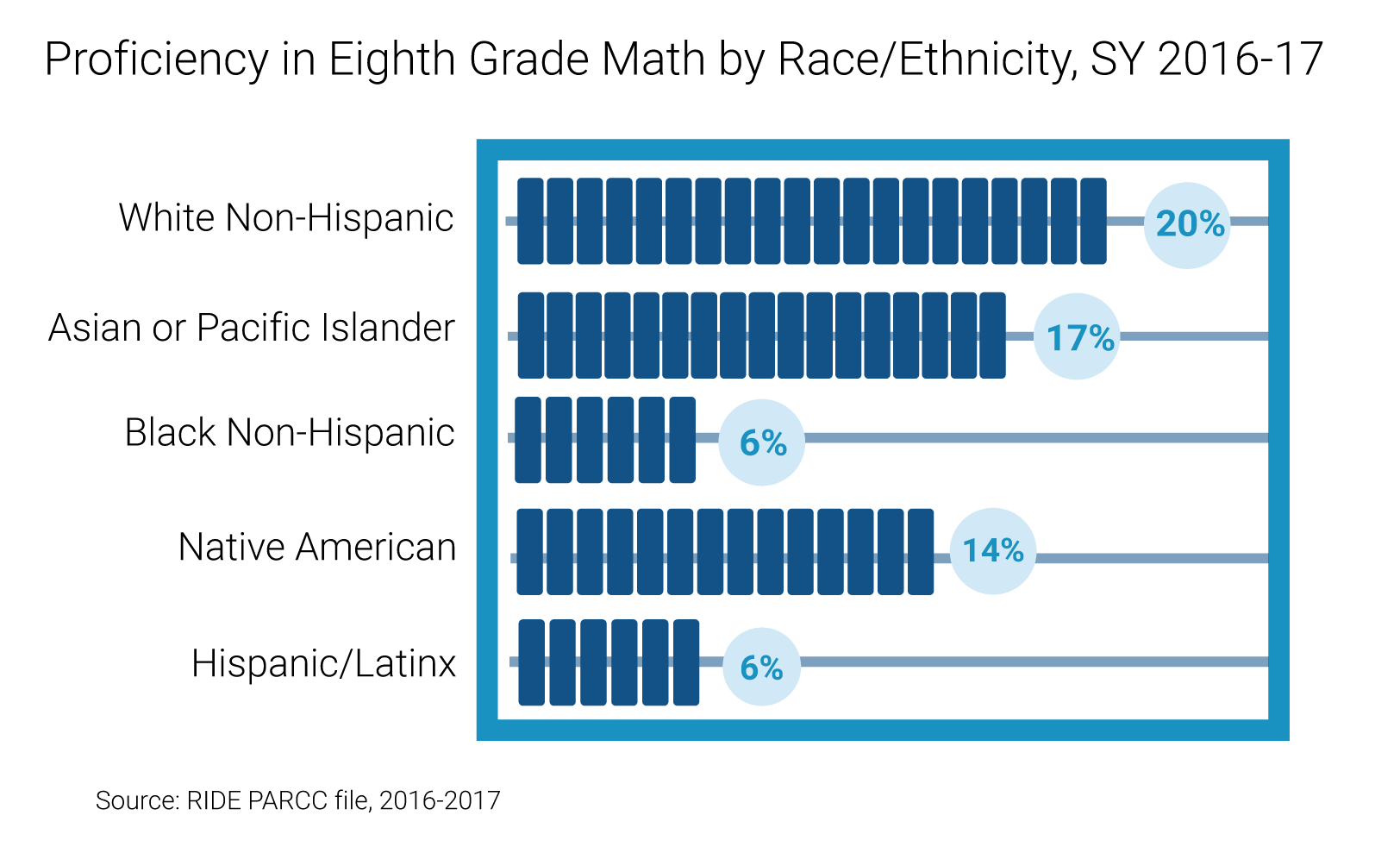The Rhode Island Department of Education (RIDE) aims to ensure that all Rhode Island students are ready for success in college, careers, and life. A Rhode Island graduate should be able to think critically and collaboratively and act as a creative, self-motivated, culturally competent learner and citizen. Through the cross-agency PrepareRI initiative, RIDE aims to close the gap between what students learn in school and what they need for high-wage, high-demand jobs.
How many 3rd graders are proficient in reading?
Reading proficiently by the end of 3rd grade is a crucial indicator in a child's development. Students who are competent readers are more likely to perform well in other subjects. Students who do not read at grade level in 3rd grade are four times more likely to drop out of high school than those who do.
As of school year 2016-2017, 40% of Rhode Island 3rd grade students were reading proficiently. Rhode Island’s economy demands that more children be on track to be proficient readers. Governor Raimondo has set a goal to increase statewide 3rd grade reading proficiency to 75% by 2025.

How many 8th graders are proficient in math?
A deep understanding of mathematical concepts by 8th grade is a similarly crucial indicator for a student’s continued academic development and success. As of school year 2016-2017, 15% of Rhode Island’s 8th grade students were proficient in math. RIDE has set a goal to increase statewide 8th grade math proficiency to 75% by 2025.

What career education programs are available to students?
Career and Technical Education (CTE) in Rhode Island is designed to provide students with the skills they need to be successful in the workforce, either directly after high school or after earning a college degree. In Rhode Island, students can attend any CTE program in the state for free. In the 2016-2017 school year, there were 155 CTE programs active in the state.

How many students are taking Advanced Placement courses while they are still in high school?
Rhode Island has made preparing high school students for college and career a priority, and by 2020, over half of all students will graduate from high school with college credit or an industry credential. The Advanced Placement (AP) program gives students the opportunity to take college-level coursework while they are still in high school and have the opportunity to apply for college credit. While there are other opportunities for students to take advanced coursework in high school in Rhode Island, AP is a nationally recognized program that is widely accepted by colleges in the United States.

How many students graduate from high school?
The Rhode Island department of Education (RIDE) reports graduation rates annually for every high school. These graduation rates focus on a single “cohort“ or group of students who entered 9th grade at the same time and track these students for 4, 5 and 6 years.
On average, over 9,000 students graduate each year from Rhode Island public high schools. The four-year graduation rate for students graduating from these public schools in 2016 was nearly 83%. This is down 1 percentage point since 2015, but still among the highest historically for RI. RIDE's graduation rate attainment goal is 95% by 2025.

How many students are graduating college-ready?
Graduating college-ready from high school means that all students have options to pursue a postsecondary degree or credential, ultimately ensuring their pathway to a good job. The SAT, the most widely used college entrance exam in the United States, is used in Rhode Island as an indicator of academic and college readiness and is most often taken during a student’s Junior or Senior year in high school. In Rhode Island being college-ready means meeting or exceeding an SAT Reading and Writing score of 480, and meeting or exceeding an SAT Mathematics score of 530.

How much money do students earn after graduating from high school?
Students earn more money each year following high school graduation, but there are pay gaps between different subgroups including gender, race, post secondary education attainment and income status (eligibility for free and reduced price meals).
Statewide, public high school graduates earn a median income of around $36,400 eleven years after graduating high school. There is nearly a $20,000 difference in earnings 11 years after graduating between those whose highest degree attainment is an Associate's Degree or Certificate versus those with a Graduate or Professional Degree.
The pay gap increases annually by gender, race and high school eligibility for free and reduced price meals.





